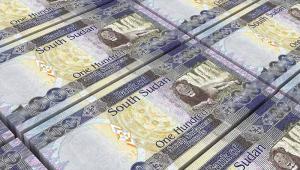In its biannual fiscal monitor, published yesterday, the fund warned that the world’s debt stock was more than twice (225%) its GDP and rising. It called on governments to act immediately.
Two thirds of the world’s debt is private, explained Vitor Gaspar, director of the fund’s fiscal affairs department, which tends to lead to financial crisis and recession, as occurred in the economically devastating crash of 2007-08 driven by reckless borrowing.
“Financial recessions are longer and deeper than normal recessions. Weak initial financial positions make financial recessions even worse,” he stated.
“It is important to intervene early in the process to make sure that risk to financial stability, financial crisis and financial recession can be prevented. A proactive early intervention tends to pay off.”
In a world still reeling from the legacies of its worst economic crisis since the great recession and characterised by stubbornly weak growth, the need to stabilise the volatile debt levels and avert the potential downward spiral they could initiate is imbued with even greater urgency, the IMF said.
The monitor stressed that well-designed, tailored fiscal policies could and should be leveraged to reduce the debt burden, even though the majority of it is private.
In China, easy financial conditions have led to a worrying accumulation of private debt that institutions have already warned could plunge the world into a fresh crisis. Gaspar said the government is well aware of the challenges and has “the means to deal with them”, for example by working to repair bank balance sheets.
Interventions would need to be specific to the situation, the monitor said, and could range from bailouts, tax rebates and subsidies to more indirect methods such as bank recapitalisation.
While the world’s private sector debt was the focus of concern, the monitor also warned that high public debt is “not without risks”.
Globally, the combined levels of both public and private debts were unevenly spread, it said, and generally correlated to GDP.
Advanced economies, therefore, held the highest debt stocks, followed by emerging markets, especially some that play a key role in the global economy. Low income nations tended to have the least.
But even here, the United Nations recently voiced concern over a looming sovereign debt crisis as poorer states, crippled by the fall in commodity prices, struggle to repay debts from heavy borrowing taken out in better economic times.
The IMF also released its global financial stability report yesterday, which similarly warned that while in the short-term risks have abated, chronically low growth, prolonged low interest rates and growing political and policy uncertainty look set to undermine the health of financial institutions.
Eric LeCompte, executive director of the Jubilee USA Network, which advocates for an economy that works for the world’s poorest, said the fund was right to be concerned about economic stability.
“The threat to banks is a significant concern. When western financial institutions collapsed in 2008, people lost jobs and too many were pushed into poverty,” he said.
“While there is agreement about the causes of the financial crisis, we’ve failed to agree on solutions.”














